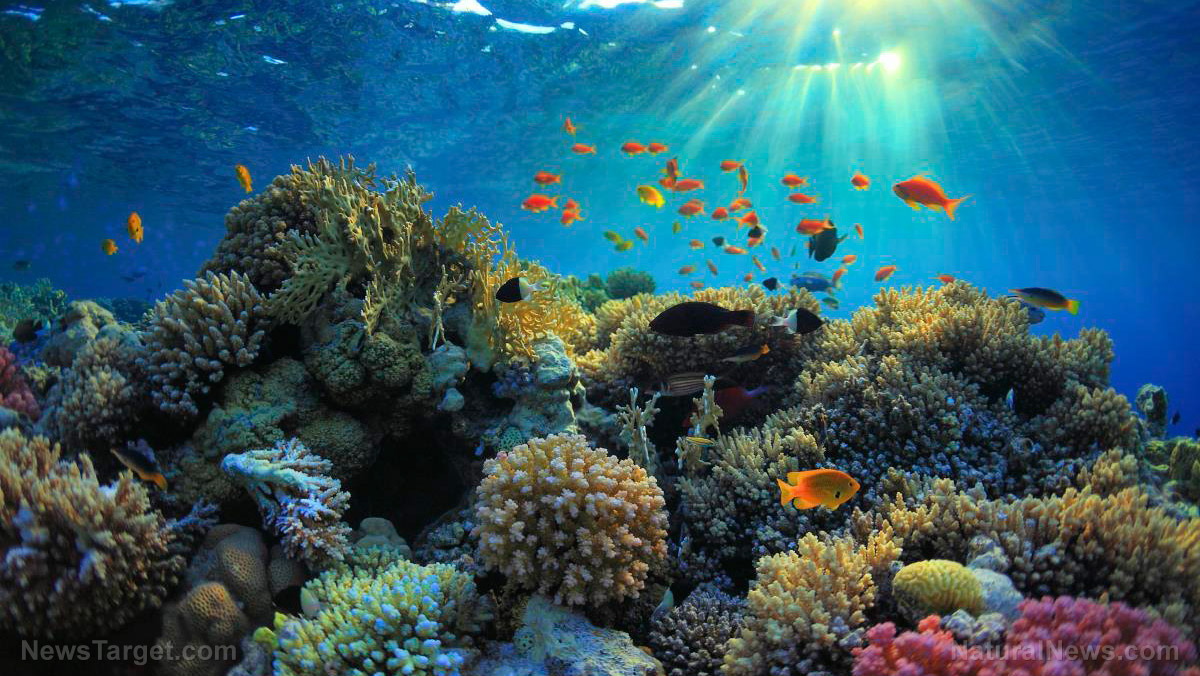
The study, which was published in the journal Science, had researchers investigate 159 coral reefs in the Asia-Pacific region to determine how the plastic debris affects the coral, as well as the likelihood of disease of a coral tangled with plastic, visiting reefs from Indonesia, Australia, Myanmar, and Thailand.
The reason for this, the research team stated in their paper, is that there have been several studies of the impact of terrestrial pollutants in the ocean; however, the full effect of plastic waste in marine organisms has yet to be explored.
After surveying the reefs, the research team found that billions of plastic materials have been tangled in the reefs – with more spikey species getting tangled with more plastic materials. The amount of plastic in the sampled areas was estimated to be at least 11.1 billion items that are stuck in coral reefs across the Asia-Pacific. (Related: The plastic pollution problem is wide AND deep: Study finds sea animals from the deepest parts of the ocean, 7 miles down, have plastic in their stomachs.)
According to study lead author Joleah Lamb, plastic debris act as a "motorhome" for microbes.
"Plastics make ideal vessels for colonizing microscopic organisms that could trigger disease if they come into contact with corals," she continued. "Plastic items – commonly made of polypropylene, such as bottle caps and toothbrushes – have been shown to become heavily inhabited by bacteria. This is associated with the globally devastating group of coral diseases known as white syndromes."
If a plastic latches itself onto a coral, it becomes prone to disease. In particular, the study reported that once this happens, the likelihood of the coral to get a disease increases by 20 times.
This is because of the stress brought about by the plastic to the corals. In particular, it blocks the light source of the corals, leading to anoxic conditions which favor pathogen growth, as well as toxin release.
In addition, corals are physically injured when they come in contact with plastic debris. This leads to abrasion, which opens up the coral to pathogen invasion. When this happens, the immune system of the coral may be compromised, allowing pathogens such as Halofolliculina corallasia to infect it and cause complications such as skeletal eroding band disease.
The authors posited that if these conditions continue, the amount of plastic that will impact the marine environment will skyrocket to 15.7 billion items, which will ultimately affect corals the world over. When this happens, the effects will not only be felt by the tourism industry but by those in fishing and coastal protection as well – a combined net worth of $357 billion in goods and services provided.
Through this investigation, researchers opined that a decrease in the amount of plastic entering the ocean will be advantageous to coral reefs, especially as its chances of getting disease-associated mortality is reduced.
"Our work shows that plastic pollution is killing corals. Our goal is to focus less on measuring things dying and more on finding solutions," concluded Drew Harvell, a senior author of the study. "This new work should drive policy toward reducing plastic pollution."
Learn more about how plastics affect the environment, and what you can do to help solve this problem. Head over to Pollution.news today.
Sources include:
Please contact us for more information.























